Are you looking for a solution to fix the “FirewallD is not running” error? We’re here to help. On Linux-based operating systems such as CentOS, FirewallD is a firewall management utility. It acts as a front-end to the Linux kernel netfilter framework, offering firewall functionality. Supports firewall zones, bridges, IPv6, IPv4, and other sets of ipsets for networks. If the FirewallD utility is not
enabled or your system is missing this tool, you may encounter a “FirewallD is not running” error on your CentOS terminal. In this post, we will check three different solutions to fix the “FirewallD is not running” error on a CentOS system. So, let’s get started!
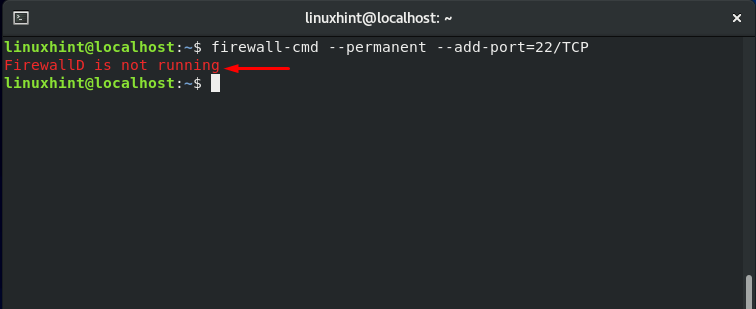
How to check
FirewallD service on CentOS
There is a possibility that you have not installed or enabled FirewallD on your CentOS. To confirm the cause of this error, run the following command:
On CentOS, the rpm utility allows users to update, verify, query, install, and uninstall any package. We will add the “-qa” option to query the FirewallD package in the rpm command. As a result, if the output shows any details about
the FirewallD package, this declares that the FirewallD package is installed: 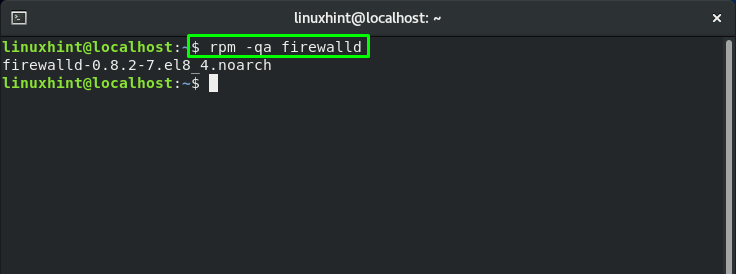
If running the rpm does not display information related to the FirewallD, you must first install it on your system before configuring it.

Go ahead and install FirewallD if it is not already installed on your CentOS system. Otherwise, proceed to the next section and follow the procedure of enabling the FirewallD service on CentOS.
How to Fix “FirewallD
Is Not Running” Error
on CentOS by Installing FirewallD
To install FirewallD on your system, open your CentOS terminal by pressing “CTRL+ALT+T” and type the following as indicated on it:
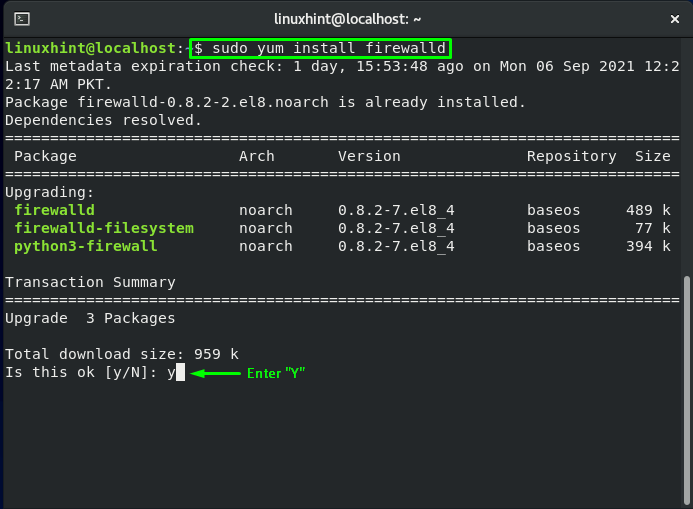
<img src
=”https://linuxhint.com/wp-content/uploads/2021/10/word-image-217.png”
alt=”” />
Now, start the FirewallD service by running this command
:  After starting the FirewallD service,
After starting the FirewallD service,
enable it on your CentOS system
: <img src="https://linuxhint.com/wp-content/uploads/2021/10/word-image-219.png" alt="
” />
Finally, check the status of the FirewallD service:
<img src
=”https://linuxhint.com/wp-content/uploads/2021/10/word-image-220.png” alt=”” /> How to Fix “FirewallD Is Not Running” Error on CentOS by Unmasking FirewallD You may find yourself stuck in a situation where FirewallD is installed on your system; however, running any FirewallD command still shows you the
error “FirewallD
is not running“. To fix this error, you need to know the status of the
FirewallD service on your system:
Your FirewallD service may be masked, so it is down on your system. To resolve this “FirewallD is not running” error, you must first unmask it before enabling it
on your CentOS system: 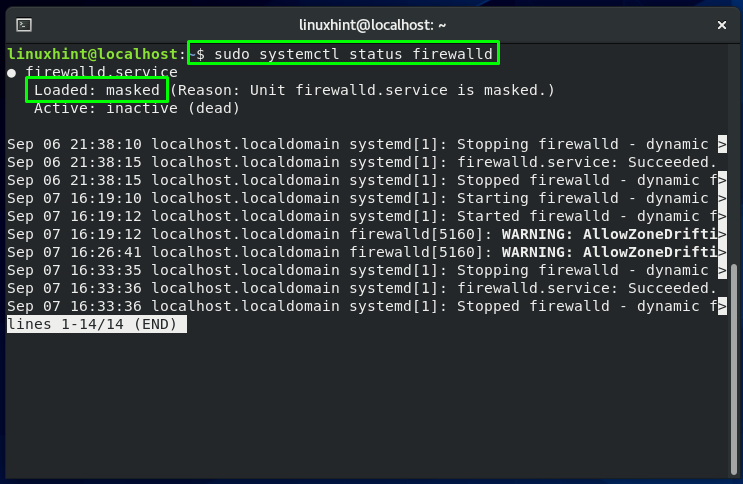
To unmask the FirewallD service, we will run this command
:
<img src
=”https://linuxhint.com/wp-content/uploads/2021/10/word-image-222.png”
alt=”” />
Now, start the FirewallD service at Your system
: 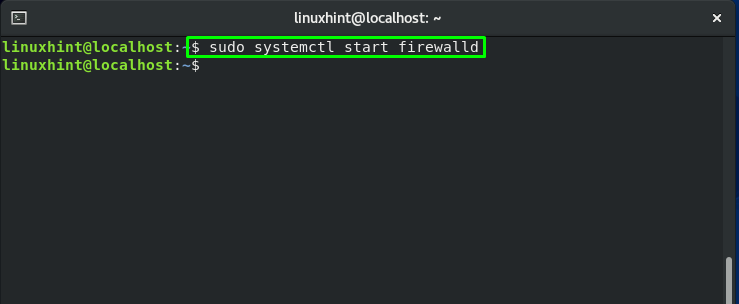
Then, check the status of
the FirewallD service by running the command given below on your terminal:
<img src
=”https://linuxhint.com/wp-content/uploads/2021/10/word-image-224.png” alt=”” /> How to Fix “FirewallD is not running” error on CentOS by enabling FirewallD To confirm if your problem of having the “
FirewallD is not
is running” error
comes under this situation
, you need to check the status of FirewallD status at first: If the FirewallD service has the “
down” status without declaring any reason, you need to enable FirewallD on your system:
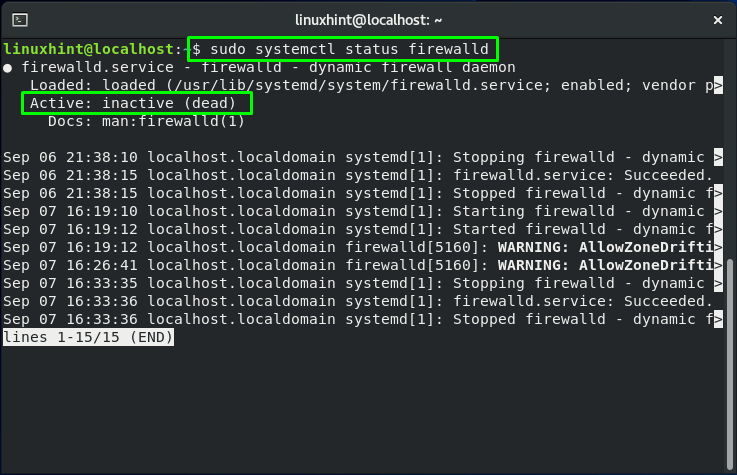
To fix the error “FirewallD
is not running” ” on CentOS, the first thing you need to do is start
the FirewallD service: 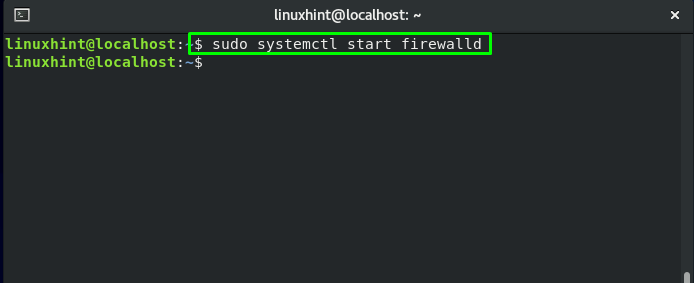
Now, enable it on your CentOS system by typing the following command in the terminal
: 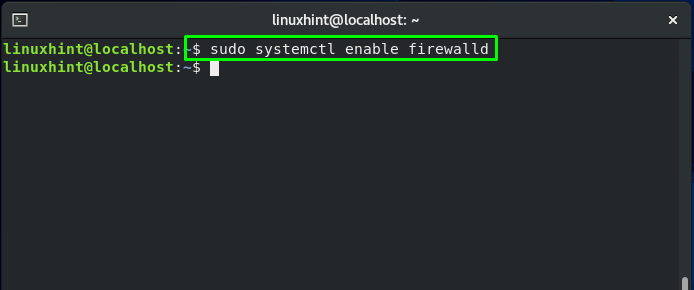
To check the status of the FirewallD service, run this command:
<
img src
=”https://linuxhint.com/wp-content/uploads/2021/10/word-image-228.png”
alt=”” />
All set! Your “FirewallD is not running” error should be corrected after following any of the given procedures. Now, we will test the FirewallD service by running an example command:
In this FirewallD command, the “-permanent” option is used to set the options permanently. While the “-add-port” option is added to open port 22 for the tcp protocol
: 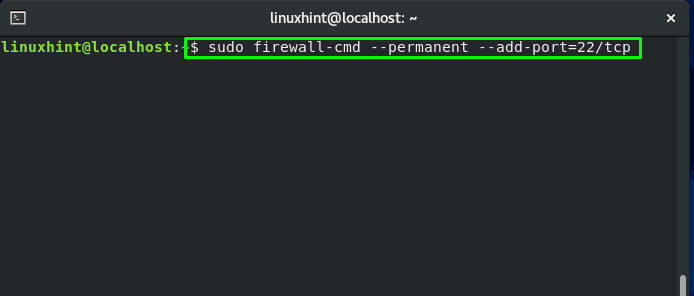
Enter the system password for authentication:
<img src
=”https://linuxhint.com/wp-content/uploads/2021/10/word-image-230.png”
alt=”” />
The output states that we have fixed the error “FirewallD is not running” ” on our CentOS System:
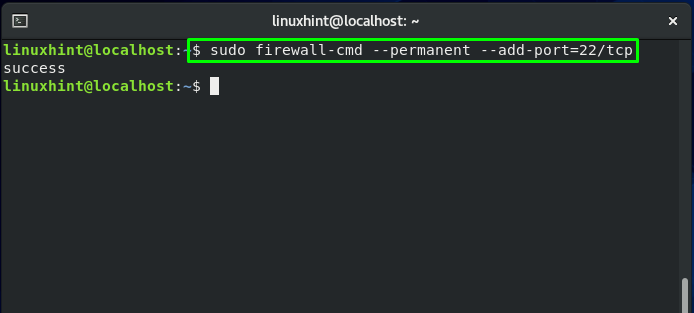
Conclusion
FirewallD is a dynamically controlled firewall that offers support for firewall and network zones. IPv6 and IPv64 firewall settings, ipsets, and Ethernet bridges are configured with the help of the FirewallD utility. If you have encountered the error “FirewallD is not running” on your system, then you are in the right place! In this post, we have compiled three different methods to fix the “FirewallD is not running” error on a CentOS system.

